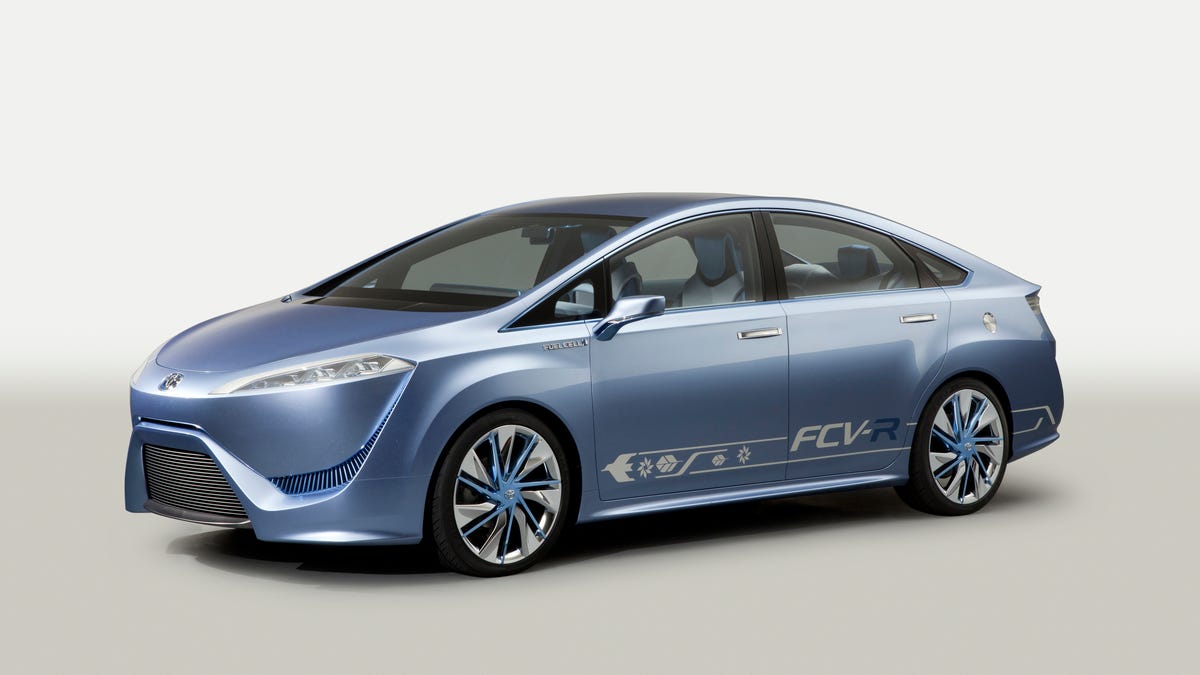BMW and Toyota co-developing fuel cells
Word is that BMW plans to share its carbon fiber technology with Toyota, which will, in turn, will let BMW in on its fuel cell power train.

Toyota and BMW are expected to announce this week a closer working relationship that expands upon the one they struck last year.
In December 2011, the two companies announced that they'll be collaborating on fuel-efficient and alternative power-train vehicles, with BMW supplying small diesels to Toyota to power its cars sold in Europe. In return, the Japanese car manufacturer would help BMW with the development of next-generation lithium ion batteries.
However, the working relationship won't end there. BMW and Toyota also plan to pool resources on fuel cell technology, according to unconfirmed reports first published in the Nikkei Business Daily. Under terms of the upcoming expanded agreement, Toyota will share its fuel cell vehicle research with BMW, such as the Toyota FCV-R, and BMW will let Toyota benefit from its lightweight carbon fiber technology that it pioneered to build its upcoming line of BMW i alternative power-train vehicles. Neither company has been particularly aggressive with their hydrogen program in the U.S., but this arrangement should help both companies ready extremely fuel efficient vehicles for the hydrogen market that is expected to grow starting in 2015.
The details of the agreement are expected to be revealed on Thursday. If this fuel cell partnership rumor is true, it won't be the first one the German automaker has struck with a competitor.
Shortly after BMW announced its partnership with Toyota last year, it also formalized a research relationship with General Motors to research fuel cell technology. BMW agreed to help GM fund hydrogen research, and in turn, GM will share its findings with BMW. GM has logged more than 2 million miles of fuel cell vehicle field tests, and is currently testing a fleet of 16 hydrogen-powered vehicles on military bases in Hawaii.
This research triangle could raise some eyebrows, but it could also accelerate the market for everyone involved. Of course, no manufacturer has solved the problem of the missing hydrogen infrastructure. But when the hydrogen highway is built, BMW, Toyota, and GM will be able to offer consumers a range of vehicles that can drive on it.
(Via: The Local)

